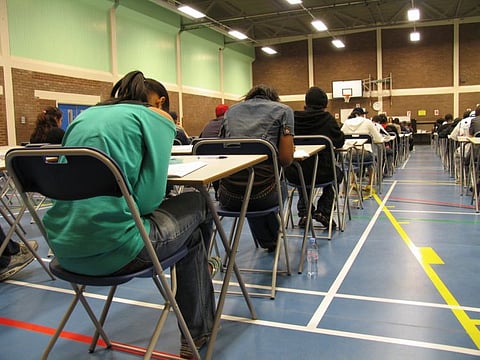It’s time to dump the SAT
In admissions we can use an evaluative tool more closely correlated with academic success

1160. My SAT (Scholastic Assessment Test) score. That I can still recall this number some 22 years after taking the exam tells you how much it stung then and casts a faint shadow even today.
My long-ago score is in line with the current reality of racial test score disparities in California, where I work as a professor. According to the College Board, which administers the SAT, in 2018 only 9 per cent of African American and 12 per cent of Latino students scored above 1,200, compared with 45 per cent of white and 55 per cent of Asian American students.
So I watch with interest as the University of California faces a new lawsuit brought by the Compton Unified School District, six advocacy organisations, and four student plaintiffs, who claim that requiring applicants to submit SAT and ACT scores discriminates against black and Latino students and those with lower incomes. They want the vast, influential UC system to drop the tests as an evaluative tool, going beyond test-optional admissions policies adopted by more than 1,000 universities nationwide.
The plaintiffs are right. It’s time to ditch these exams if we care about diversity and providing those from underrepresented backgrounds in academe a fair shot at higher education. Even discounting the cheating involved in the college admissions scandal, it’s clear that wealthy, sophisticated parents can give their children a lawful advantage by paying for test coaching or helping secure special accommodations, such as extra test time.
High-stakes exams
No perfect metric exists, and the affluent will always have a leg up. But the least we can do in admissions is use an evaluative tool more closely correlated with academic success in college, such as high school grades, instead of relying on a high-stakes exam that disadvantages students without the social capital or economic resources to excel.
Like the students in the UC lawsuit, I faced hardships that didn’t help my scores. My family’s low income made me eligible for a fee waiver for the exam, but we couldn’t afford adequate heat in our house, let alone my school-sponsored test prep course or other tutoring. I prepared with a used Barron’s SAT prep book and handmade flashcards, and racked up lacklustre practice test scores. That year, my mother died, leaving a raft of medical bills and upending family life. I made it to the exam only due to the kindness of a neighbour, who gave me a ride to the test site.
I scored much more poorly on the SATs than anyone who saw my straight-A report cards (11th in a class of 611) would have expected.
My SAT score wasn’t just embarrassing — it had consequences. I didn’t even consider applying to more than three schools. I missed out on a generous merit-based scholarship at the university I attended, which required a 1200. Later, when I applied for a master’s degree, I avoided programmes that required the SAT-equivalent exam for graduate school, the GRE.
But the SAT shouldn’t have mattered that much. Research has shown that such scores have little correlation with a student’s future academic performance; high school GPA is the most consistent predictor of college grades and likelihood of graduation.
Stacey Torres is an assistant professor of sociology at the University of California at San Francisco.



